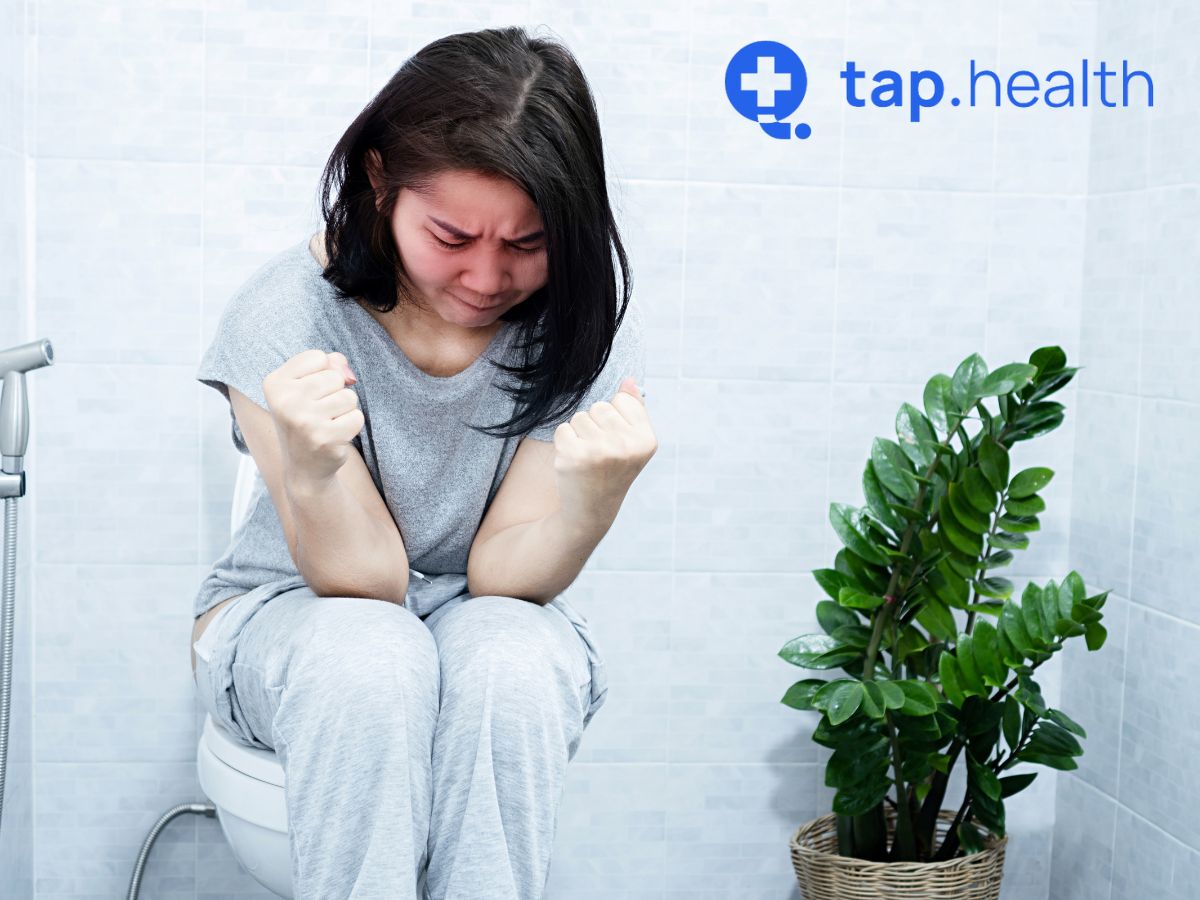It is an easily identifiable gastrointestinal disorder that can affect individuals regardless of their age. This may be uncomfortable and cause gas, stomach pain, and constipation. As we mentioned before, numerous reasons may lead to constipation, but several home remedies can be of great help as well. To continue with the article, let us look at ten natural remedies that one can comfortably administer at home.
What Causes Constipation?
Before diving into the remedies, it’s essential to understand the underlying causes of constipation.
Low Fiber Diet: Fiber deficiency which is in fruits, vegetables, and whole grain leads to hard and dry stools that require a lot of effort when passing.
Dehydration: Insufficient intake of water results in constipation due to peel formation of the fecal mass making it rigid to be passed through the anus.
Lack of Physical Activity: Generally, a slow lifestyle affects the movement of the bowels hence causing constipation.
Ignoring the Urge to Go: Studies have shown that H. pylori may weaken the lower esophageal sphincter which means that despite food traveling onto the stomach the sphincter gradually loses the force which is used to prevent food from slipping back up into the esophagus. Visiting the restroom when you feel the urge to defecate is healthy since it will help you avoid constipation as the stool hardens the longer it stays in the colon.
Changes in Routine: A sudden change in lifestyle such as travelling — thus altering their normal pattern of defecation — can cause constipation.
Certain Medications: Opioids such as morphine, antacids that contain calcium or aluminium, antidepressants, and iron supplements are acknowledged for triggering a side effect of constipation.
Medical Conditions: Other causes of constipation include: Other medical conditions such as irritable bowel syndrome, hypothyroidism, diabetes, and neurological disorders among others.
Pregnancy: General decrease in gut motility Changes in hormones during pregnancy may cause constipation because the digestive system is slowed down.
Aging: Aging is one factor that slows down metabolism, which in turn can result in poor bowel movement.
Overuse of Laxatives: It is, however, worth noting that frequent use of laxatives may cause the substance to affect the bowel muscles and create dependency, thus causing constipation.
Stress and Anxiety: Stress and anxiety are some of the factors that may evoke constipation and affect the digestive system.
Knowing what a person could take or avoid to prevent constipation would make it easier to deal with the problem. The priority measures responsible for ensuring the proper functioning of the bowels include adherence to a healthy diet, normal water intake, physical activity, and management of chronic diseases. Prolonged chronic constipation requires one to see a doctor who would help rule out the presence of other ailments and accord the right treatment.
What are the Symptoms of Constipation?
- Infrequent Bowel Movements: This may be defined as the passing of stool less often, less than three bowel movements per week.
- Hard or Lumpy Stools: Facial expression, speech and movement of colonic and rectal parasites that may present through the anus.
- Straining During Bowel Movements: Difficulty in finding an opportunity to defecate or having to struggle or press to pass stools.
- Feeling of Incomplete Evacuation: That feeling that you still have not defecated fully after one movement.
- Abdominal Discomfort: Easier bowel movements but still often uncomfortable: pain, bloating or the sensation of having a full stomach in the abdomen.
- Rectal Blockage: Presenting the symptoms of constipation with sensations of a fecal impaction, normally located in the rectum.
- Use of Manual Maneuvers: Necessity of having to use hands to touch your belly or having to insert your finger into the rectum to pull out some stool.
- Changes in Bowel Habits: Altered bowel habits such as constipation or diarrhea, changes in normal bowel schedules, or more or less effort needed to pass bowel movements.
- Reduced Appetite: A decrease in appetite and the desire to eat foods or avoid foods that make one feel full or bloated.
- Nausea: Suffering from nausea, or even vomiting in some of the worse cases that might be witnessed.
These signs may alert one to seek treatment in case of constipation before it develops into a severe level. While constipation in the long run may cause discomfort rather than severe harm, it should be seen by a doctor if it persists. To prevent constipation, there are some things that people should avoid, these include: They include daily exercising, taking meals that is rich in fiber, and adequate intake of water. Now we will deep dive into the home remedies for constipation.
8 Natural Home Remedies for Constipation
To have to deal with it can be quite irritating and inconvenient to the point of affecting one’s daily routine. Fortunately, there are natural remedies that one can take in their home in case they are suffering from constipation. These remedies are safe, and potent and can be had right in your kitchen and they offer you the comfort that you need.
To further improve your understanding of the mentioned remedies, please click on each remedy and read more about them.
1. Increase Dietary Fiber Intake
The best approach to ensuring that constipation can be prevented as well as treated is by making sure that one intakes foods that have high fiber content. Healthy foods also include foods with fiber such as fruits, vegetables, whole grains, and legumes that help individuals to defecate regularly. You should try to eat not less than one quarter to one half = 25—30 grams of fiber per day.
Also, you are welcome to add natural and gentle laxative foods, for instance, fresh prunes or flax-seeds into your daily diet. These foods contain special compounds that can lead to the stimulation of bowel movement, meaning that the food makes it easier for the stomach to pass stools.
2. Stay Hydrated
It is important to ensure that one takes enough water throughout the day to exercise proper bowels. Try to take a minimum of water and eight glasses per day depending on the size of the glass. Drinking fluids assist in easing the passage of faeces through the digestive system because it facilitates the movement of water in the intestines and hence causes the faeces to be softer.
3. Exercise Regularly
Physical exercise breaks emphasize on mixing the food well inside the stomach, thus causing movement that facilitate bowel movement. Movements like walking, jogging, or doing yoga can reduce constipation, which can otherwise be a major issue for women. It is evident from the recommendations above that having exercise as part of your every day activities is beneficial to the gut.
4. Practice Mindful Eating
There are specific guidelines or principles that you can adopt towards healthy eating to take care of the digestive system. The next oral hygiene tip is eating slowly and chewing your foods properly so that your body gases can effectively digest the food. It is necessary to avoid overloading a gastric stomach and choose to divide meals into more insignificant ones during the day instead. Consuming food mindfully can be beneficial in helping to prevent and effectively cope with constipation.
5. Use Natural Laxatives
Here are various natural laxatives and some of the ways through which one can take them to relieve a constipation condition. Some types of tea that people might prefer include chamomile or peppermint tea whose ingestion aids in normalizing bowel movements. Aloe vera juice or slippery elm bark is also used to enhance the laxative effect The active laxatives used consist of Fibersol, Silicon, Sulfur, Magnesium Hydroxide, Potassium hydroxide and Potassium Chloride.
6. Consume Probiotics
Probiotics are live organisms that, when administered in adequate amounts, help promote improved gastrointestinal health, particularly by supporting bowel regularity. It naturally occurs in such items as yogurt, sauerkraut, or kefir though it can be added to any food that contains yogurt mainly for improving its texture. It is therefore desirable to incorporate these probiotics into your eating habits as they will help to provide a healthy gut flora and avoid such cases of constipation.
7. Try Herbal Remedies
The following are some of the natural cures for constipation, which have been employed for centuries throughout the world. There are plenty of natural laxatives that are used in herbal medicine such as senna, cascara sagrada and rhubarb root. But still it is always advisable to seek advice from a medical practitioner before using any herbs to know their efficacy and side effects including possible toxicity levels.
8. Apply Abdominal Massage
Massaging of the abdominal area can help in encouraging bowel movements since it reduces the spasms of the intestinal tract muscles. To do an abdominal massage, clamp the skin gently between your fingertips and draw spirals around the navel in a clockwise cycle. This can be beneficial in providing constipation relief and may assist in reducing feelings of bloating.
FAQ on Home Remedies for Constipation
1. Can stress cause constipation?
A: Yes, stress can disrupt the normal functioning of the digestive system, leading to constipation. Practising stress management techniques such as deep breathing exercises, meditation, or yoga can help alleviate constipation by calming the mind and reducing the impact of stress on the body.
2. How long should I try natural remedies before seeking medical help?
A: If constipation lasts for more than two weeks despite trying natural remedies such as increasing fiber intake, staying hydrated, and being physically active, it’s advisable to consult a healthcare professional for an evaluation. Persistent constipation could be a sign of an underlying medical condition that requires medical attention.
3. Are there any specific foods to avoid when dealing with constipation?
A: While everyone’s tolerance may vary, it is generally recommended to limit the intake of processed foods, dairy products, and refined sugars, as they can contribute to constipation. Instead, focus on incorporating fiber-rich foods like fruits, vegetables, whole grains, and legumes into your diet to promote regular bowel movements and prevent constipation.
4. Can pregnancy cause constipation?
A: Yes, hormonal changes during pregnancy can slow down digestion, leading to constipation. Pregnant women should consult with their healthcare provider for appropriate remedies such as increasing fiber intake, staying hydrated, and engaging in regular physical activity to help alleviate constipation and promote digestive health during pregnancy.



